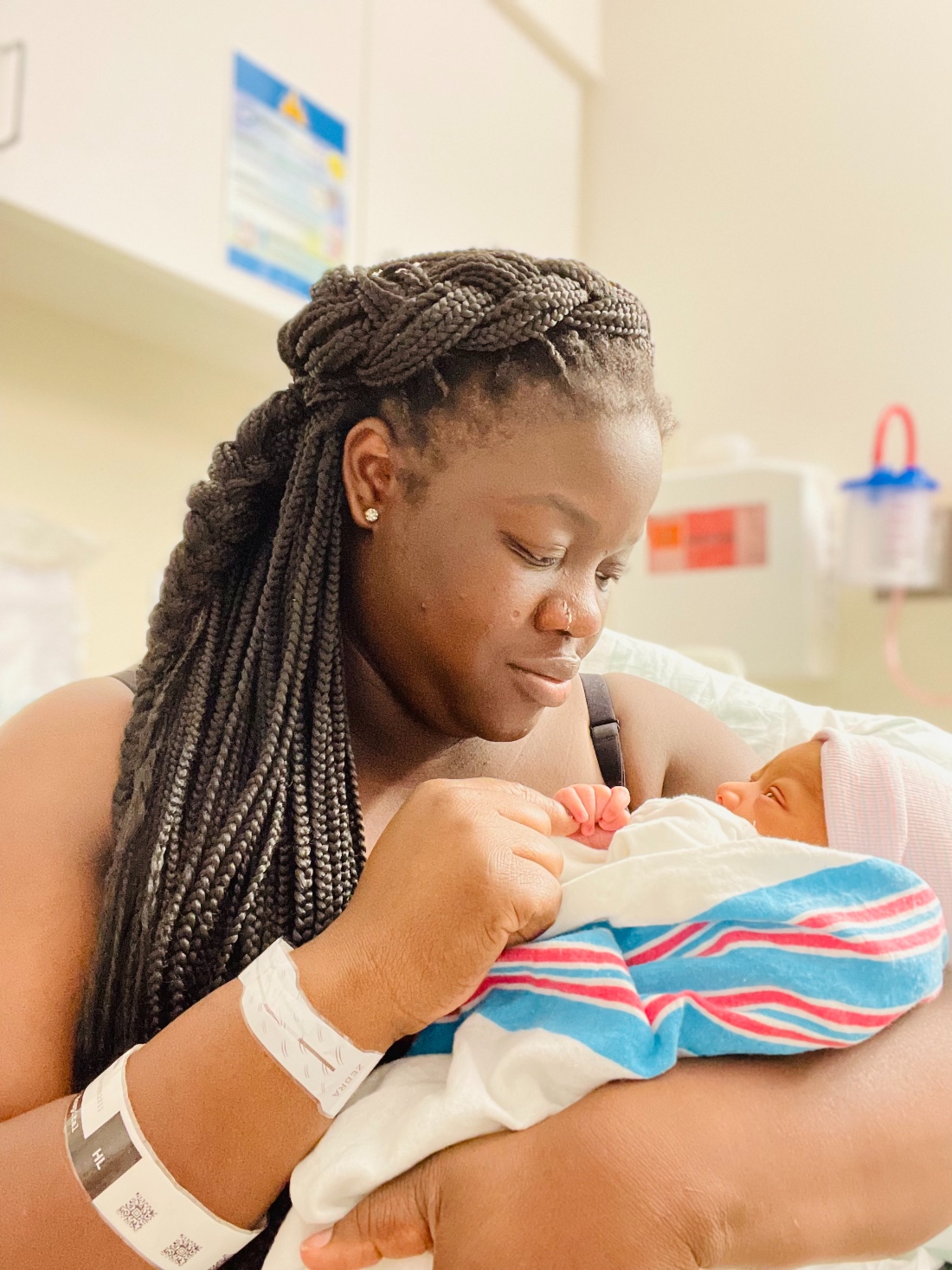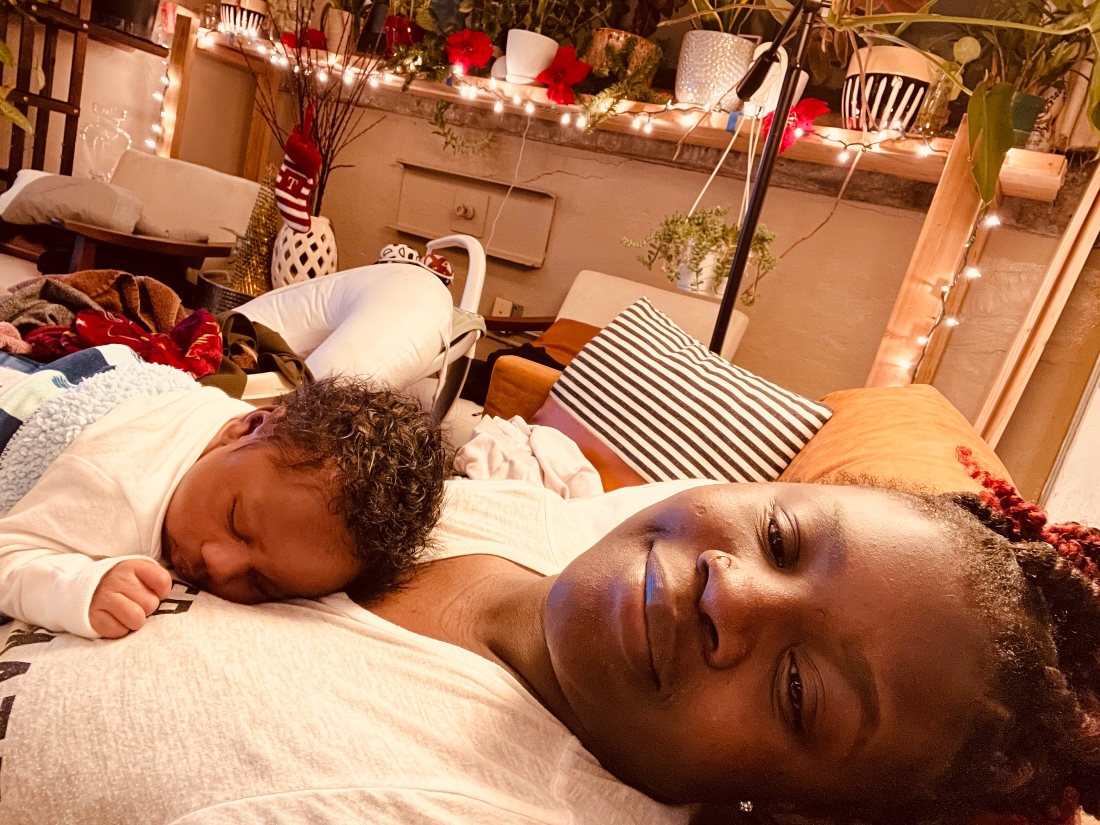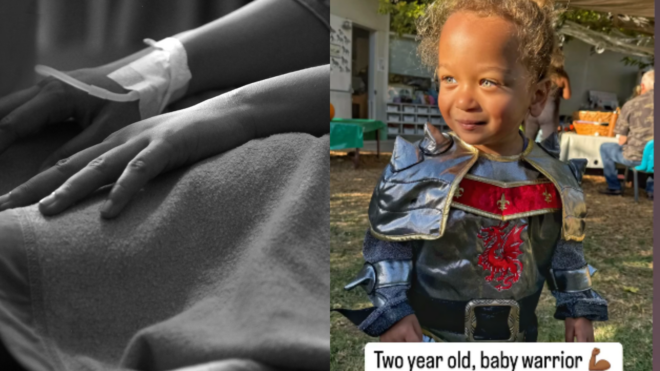
The teen movie Save The Last Dance was an instant hit when it came out back in 2001. Now, more than 20 years later, people debate how cringey it is based on today’s standards. Still, for all of the back and forth, there is one scene that absolutely holds up, and it has a surprising connection to Black maternal health in America.
It happens when Sara, played by Julia Stiles, accompanies Chenille, portrayed by Kerry Washington, to the clinic with her young son. Frustrated about the lack of support from her coparent, among other things, Chenille explains to Sara why people might be upset to see her — a white woman — dating her brother Derek, a Black man.
“[Derek] is going to make something of himself. And here you come, white so you gotta be right, and you take one of the few decent men we have left after jail, drugs and drivebys. That’s what Nicki meant about you all up in our world,” she says.
Sara responds naively, “There’s only one world, Chenille.”
“That’s what they teach you. We know different,” Chenille retorts.
Chenille is not a real woman. But the real-life Black women her character reflects do know different. There are two different worlds, especially when it comes to birthing.
In the United States, Black women are three times more likely to die during pregnancy or postpartum than white women. Many of these deaths (2 out of 3) are considered preventable, according to the American Journal of Managed Care.
There’s no inherent link between Blackness and disease or negative outcomes. Instead, the disparities are linked to socioeconomic factors like health care access and the systemic racism present in the country’s health care system.
Dr. Nicole Redmond, medical officer in the National Heart Lung and Blood Institute’s Division of Cardiovascular Sciences, said these negative outcomes are bigger than an issue of class.
“We tend to conflate race with class and assume all the problems are due to poor women of color lacking access to care,” she said, according to the institute, “but Black women at all income and educational levels experience bad maternal outcomes. And research is showing detrimental effects of some interactions between women and their health care providers – the way women feel treated due to the assumptions being made about them can hurt.”
These assumptions show up in long-held racist beliefs that Black people have “less sensitive nerve endings, thicker skin, and stronger bones,” according to findings from researchers Bani Saluja and Zenobia Bryant presented in the Journal of Women’s Health. These beliefs cause health care professionals to miscalculate the pain Black women experience during pregnancy and postpartum. As a result, treatments were often inappropriate, if they were administered at all.
In all of this deeply depressing news, there is a partial solution. A 2020 study from the Proceedings of the National Academy of Sciences found that the Black maternal mortality rate is cut in half when Black newborns are cared for by Black physicians.
It’s the reason Tacha Sako and Jade Denis — two Black mothers in their 30s — were adamant about having Black medical professionals deliver their children and care for them in the months before and after delivery.
More from CafeMom: New National Maternal Mental Health Hotline Had 12,000 Interactions in Its First Year
Tacha Sako's doctor gave her auntie vibes and comforted her through freak-outs and fibroids.

For Tacha, the realities of the Black maternal mortality rate were more than just headlines. She had a friend who died three years ago. As a result, she knew what she was looking for in her OB-GYN.
“I wanted someone that would understand me through and through. I wanted to be comfortable. I want to be happy,” she tells CafeMom. “If I say ‘Hey, this is going on or happening.’ I want her not to question me. I want her to say, ‘You know your body better than me so let’s see what’s going on.’”
Thankfully, Tacha, who lives in Cleveland, found that in Dr. Yolanda Thigpen, who Tacha says gave her “auntie vibes.”
“During my first appointment, I was bawling. I said, ‘Oh my God, I’m really pregnant.’” Tacha recalls. Thigpen comforted her from day one. “She said it’s fine. She held my hand and said, ‘Congratulations, you’re a mom.’”
But even after she chose Thigpen as her OB, Tacha still had concerns.
“I was probably terrified my whole pregnancy,” Tacha confesses. Those fears were exacerbated once she learned she had developed fibroids while pregnant. Again, Thigpen helped to reassure her.
“‘Tacha, you don’t worry,’ Tacha says, recalling her doctor’s words. “When I worry, you worry. And whatever is going on, we’re going to take care of it. I don’t want you to stress yourself out. That’s not your job right now. Your job is to grow a baby.’ The way she talked to me … her tone and everything was very relaxing.”
But it wouldn’t be long before she realized that everyone didn’t share Thigpen’s bedside manner.
'He doesn't care at all,' Tacha shares, saying her experience with a white male physician was totally different.
Six months into her pregnancy, Tacha’s fibroid ruptured and she was in pain. Thigpen wasn’t available and she had to speak to someone else on her team, a white male physician. When she described her condition, the other doctor assumed she was dealing with round ligament pain. He told her, “‘What you’re describing doesn’t make me feel concerned but if the pain continues, give us a call back,’” she tells us.
Hours later, the pain was sharp and throbbing. She called the white doctor and he told her to come to the hospital. Once she got there, another resident told her that her fibroid had ruptured.
“You know this man never showed up in my room?!” Tacha says incredulously. “He left. He was supposed to come in to make sure I was discharged. Another doctor who came on shift had to discharge me. He never came, never said anything to me and this is a man I talked to twice that day.”
That interaction let Tacha know that not only was Thigpen different, but it also helped her get clear on who she wanted present for her actual delivery.
“I just knew, I do not want him anywhere around me,” Tacha says. “He doesn’t care at all.”
Jade Denis chose a midwife so she wouldn't be just another number.
Jade knew after her first few OB visits that she wanted to forgo the traditional hospital route altogether.
“There was no initial thought that I want my doctor to be Black because my doctors have always been Black,” Jade says. Still, something about the system left her feeling uncomfortable.
“What got me to switch medical professionals was that doctor wasn’t guaranteed to deliver my baby,” she explained. “I was like, ‘What?! So I’m supposed to build a rapport with you for the next eight months – d— near a year – and you’re about to take your PTO?”
Shortly after that visit, Jade watched the documentary The Business of Being Born, and it changed her outlook on how labor and delivery could look.
“I was happy that I was at least at a Black practice but I’m literally a number. They had great bedside manner, great hospitality. I never felt necessarily rushed. But I felt like I was another mother who had a baby on X date,” she shares. “After I saw that documentary, I thought there has to be another option. So in the middle of my first trimester, I switched over to my midwife.”
Jade knew as soon as she interviewed Kai Parker over Zoom that she would be the one for her.
“I remember her specifically saying to me, ‘You know Jade, no matter what decision you make, you birth how you live. Something about that was so affirming for me,” she tells us. “I had never thought of it that way. However your baby decides to come into this world, the reflection of who you are every day is walked out the most when you’re giving birth.”
Jade needed a lot of mental fortitude to give birth at home.
Deciding to work with a midwife and not a traditional doctor was a decision Jade kept mostly to herself as she tried to clear her mind of thoughts about the negative outcomes disproportionately common for Black women.
“I was trying to create this bubble — not of toxic positivity — because I was aware,” Jade says. “But I also didn’t inundate myself with more research than I needed. It took a lot of mental fortitude.”
More from CafeMom: After Wife’s Childbirth Death, Dad Speaks Up About ‘Silent’ Crisis Facing Black Moms
The Black maternal mortality rate is not a problem for Black women to fix.
A mom myself, years ago, I spoke to Black OB-GYN Dr. Tamika Cross about what Black women can do to combat the Black maternal mortality rate. She assured me that it wasn’t a problem for Black women to fix because it’s a systemic issue. The system has to change, and Black women can’t be responsible for that. We are not the problem.
Still, Jade and Kayanna have suggestions for Black women who are feeling anxious as they learn of pregnancies and prepare to give birth.
“I would say to any woman, especially a Black woman, if you’re feeling something, there’s a reason for that,” Jade offers. “You should really follow that. Hospitals aren’t all doom and gloom, but if something makes you feel uncomfortable, don’t ignore that.”
Tacha and Jade strongly suggest Black mothers seek out and hire Black medical professionals.
Tacha says doctors know the health care system is broken when it comes to Black women. They should do the work to change it.

Tacha has words for the system and the doctors who continue to put so many Black women and their babies at risk.
“We know that Black women are more likely to experience issues with high blood pressure, gestational diabetes, etc. Because we know these things, it would be nice if the system would work in our favor. You already know this is not working for Black women, change it!” she urges.
Tacha says when physicians see Black women come into their practices, they should question their own bias and err on the side of caution.
“You can’t miss it. I’m Black,” Tacha says. “You should automatically think, ‘OK, this is someone who’s going to need more care.’”







